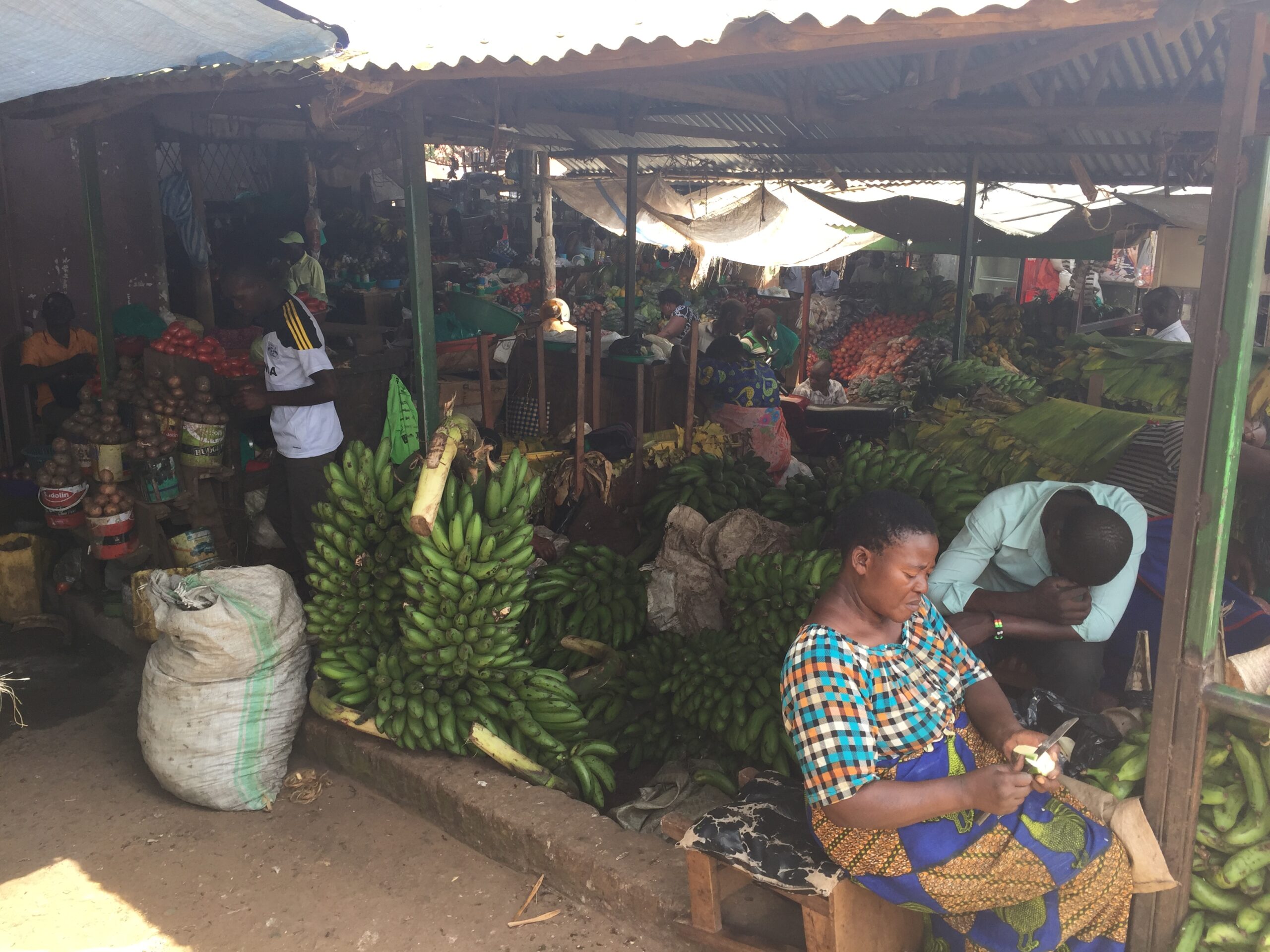Photo: Laura Richards
“There is no road in your home,” my neighbor Michael said to my friends and I as we sat down with a plate full of homemade Ugandan food. I tilt my head in confusion, trying to fit his words into the context of the evening full of dancing, singing, talk of politics and accompanying laughter. “There is no road in your home,” Michael repeats. “It means you do not just pass through one’s home. When you are here, you can stay here and you are all always welcome to stay here.” We are all touched and it shows in our eyes.
The dinner party at Michael’s for his wife’s birthday gave me the same warm feeling that I have experienced since my first day in Uganda. Although it has only been one week, I already feel at home. From my coworkers, to the women at the vegetable market who laugh as I greet them in Luganda, to the local language (Jeebale ko nyabo), I have been embraced in Uganda in a way I expect most Ugandans would not be arriving in America for the first time. And although the individuals I have met are incredible human beings who have gone above and beyond to make my transition here a smooth one, the kindness I have received seems to stem from deep within Ugandan culture.
There is another phrase I have heard here: it is more blessed to give than to receive. It is a biblical phrase, and indeed many people here are devoutly religious. These phrases are more than just words said on Sunday; they are embodied in the mentality with which Ugandans live their lives. The church I pass on my walk to and from my home can be heard from down the street playing loud music with people singing along nearly every day of the week. A peek inside reveals people smiling and dancing; the joy seems to just spill out onto the street and passersby carry it with them all day. It is not just the pious who give generously and smile broadly.
People here live joyfully and they share that joy with those around them, even with those who look different than themselves. The concept of choosing to live joyfully may be simple, but in practice it is not. Many people live their lives engulfed by what they do not have or what they cannot be. Ugandans seem to revel in the simple joys of everyday life, grateful for each moment of the day.
Immersed in this new way of life, I am reflective of the way I live my own. I consider myself a joyful person and someone who appreciates the little things. But it feels different from what I am witnessing all around me. The traffic and lack of rule of law on the road would have me steaming, yet I have not seen one driver yell at another. The drops in internet service have me banging my head on my desk, but my coworkers just occupy themselves with other things. Women walking our direction offer to help us carry our water home. The man with the wheelbarrow of corn stops to give my boda boda driver directions. My coworker uses his day off to walk me to the market, help me bargain for good prices and carry my first batch of groceries home.
These are but a few of the acts of kindness I have experienced in my first week in Kampala. They may seem small, but they are constant. What is it that connects these people to the strangers around them? What drives this prosocial behavior? I am committed to dig deeper and find out. I want to fully embody this mentality in order to serve my organization more completely; I want to live more joyfully each day and spread that joy to those around me.
The organization I work for, The Women of Uganda Network (WOUGNET), has channeled this way of life into a commitment to serve under-resourced Ugandan women. They have already embraced me as family and it is in this setting that I am most consistently reminded of the instant connection Ugandans feel towards others. We are not just “coworkers” and we are not just doing “work”. We are a family trying to better the lives of our larger family, the people of Uganda. Our tools are policy advocacy, technical support, and ICTs (Information, Communication and Technology) for Ddevelopment .
I work on the ICT for Ddevelopment team and am geocoding the locations of women’s organizations throughout the country. With this interactive map, women will be able to find and contact organizations that provide the resources they need. It is a contribution that I am driven to make for people I am becoming increasingly connected to, despite having not met.
As I fall deeper in love with this country and its people, I find myself doleful about my inevitable departure. Then the Ugandan mentality kicks in and I feel overwhelmingly grateful for the time I have here and commit myself to absorbing as much as I can and to give my best self in return.
Edited by: Joel Dishman



